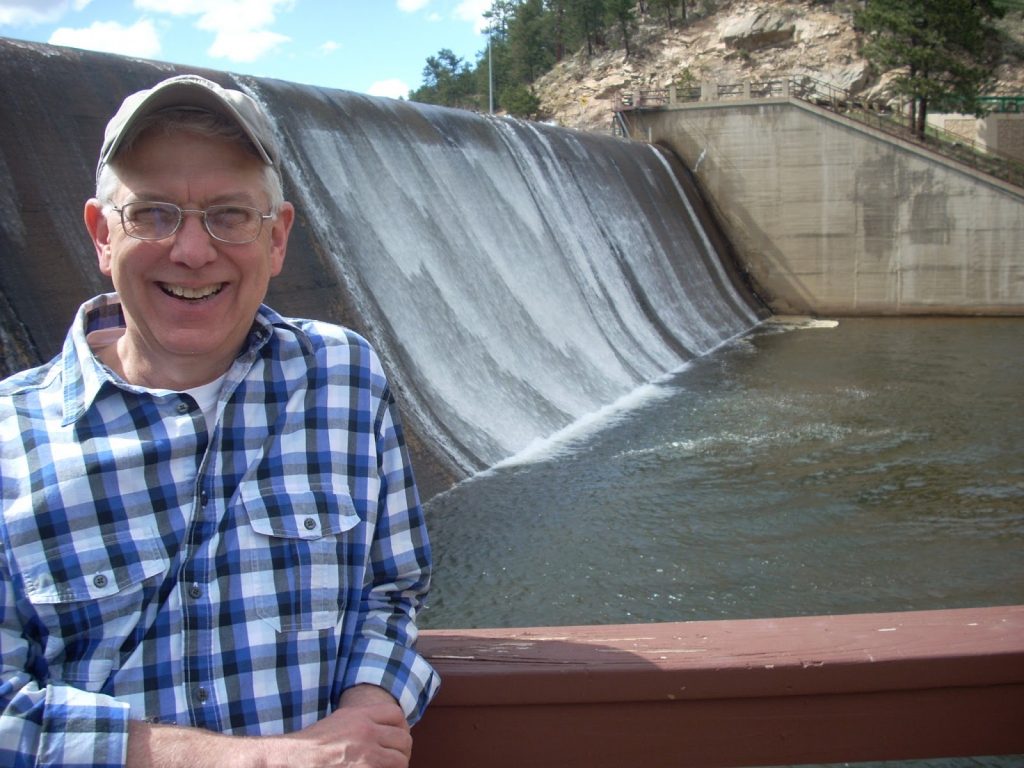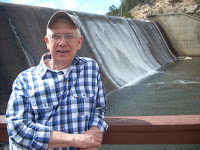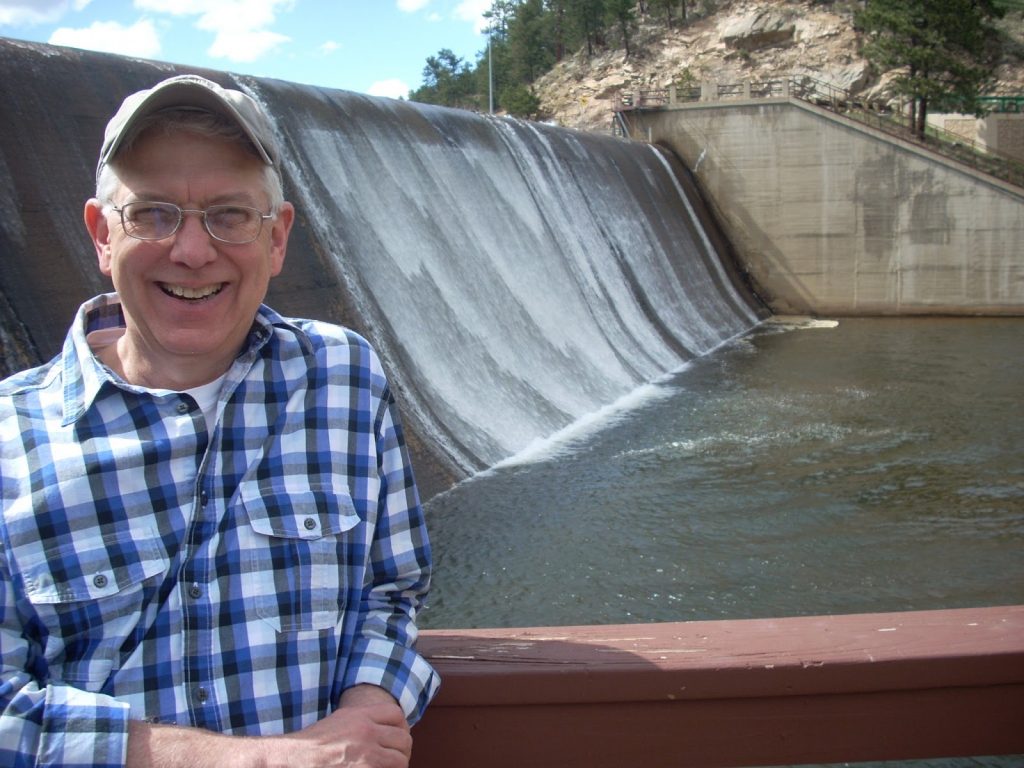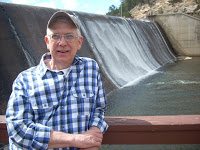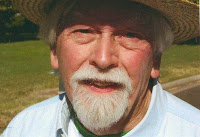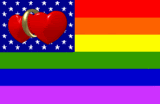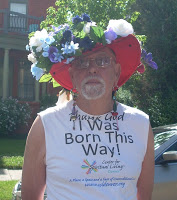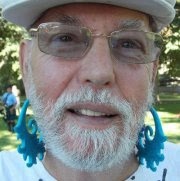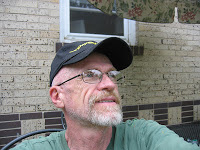It was a little over 4 years ago that I got the nerve to go to the Gay Pride activities at Civic Center. I had gone about 15 years ago and ran into someone that I knew and at that time I was so far in the closet that I couldn’t admit even to myself that I was fascinated and curious about the gay culture. Having seen someone that recognized me freaked me out. So after all those intervening years, I finally got up enough nerve to check things out again. My problem wasn’t with being gay, but with other peoples’ reactions. But now I was retired and my only concern would be my kids’ reactions. I figured it didn’t matter much at this point in my life now that they were grown. But I saw no point in saying anything unless I had a lover. I didn’t know much about gay culture and was uncomfortable with going to bars, straight or gay. And for the most part I was unaware of the gay activities and groups where I might meet others and learn about these things.
So I leisurely strolled around Civic Center Park and observed, but without much understanding of the goings on. I was approached by this elderly man who handed me a green card about a luncheon held on Wednesdays with a group of gay men called the Prime Timers. The little gentleman I later got to know. His name was Francis Acres and I credit him with opening the door for me to discover a part of myself that was yearning for expression and acknowledgement. At the time I thanked Francis for the invitation and stuck the green card in my pocket fully intending to trash it when I got home. However just as I was about to throw it in the garbage I looked at it again. Suddenly it seemed like it was the thing I had hoped for. I called the telephone number on the card and left a message for someone to call me with more information. I didn’t get a response. On Wednesday I called the 20th St Cafe where the “Nooners” luncheon was held and found out the time it started. Not knowing how long it would take by bus, I got there quite early. Don Harvey and Jim Michaels were there, greeted me and explained the procedure for buying the lunch and some information about the group. I watched as the members came in and had my first exposure to a gay activity. By the third Wednesday I joined Prime Timers and have been going to events and activities ever since. I started going to the Monday “Coffee Tyme” where last year, I met my lover. Slowly I was feeling more and more comfortable with the group activities and discovered that many older men had also been married, raised children and came out late in life. Others have always been gay while a couple of the guys I met were not only out, but still married. I was no longer the only one with a family and straight friends. I got involved in The Denver Church, later to be known as The Center for Spiritual Living-Denver. And about 2 1/2 years ago, I started going to activities at the GLBT Center.
When I met my first lover at “Nooners,” I finally told my kids. A surprise to me, they all said that they had always known. My oldest daughter said, “I knew you were gay before you did! Ha, ha, ha.”
Now on Mondays we go to the Telling Your Story group, of which this writing is for this week. On Tuesdays is the Men’s Coffee group. Wednesdays is “Nooners,” Thursdays I go to The Open Art Studio and on Fridays I volunteer at the front desk. “Nooners” on Wednesday and The Center for Spiritual Living on Sundays are the only regular activities not at the GLBT Center. Of course there are other activities now and then, some monthly, others only one time events, others a few times a year. We also belong to the Colorado Front Rangers.
I’m now experiencing one of the most rewarding and happy periods of my life. I am very comfortable being myself and doing things I would never have done in the past. I went to the celebration of the repeal of “Don’t Ask, Don’t Tell” with my two lovers dressed in drag, fulfilling a fantasy I have had for a long time. I rode sitting on the back of convertibles in two Gay Pride Parades, waving like the queen that I have become. Last month I had 4 outfits, including 4 wigs and 3 pairs of shoes as I participated as Queen Anne Tique in The Gray Stocking Review. I am recognized by people that I don’t remember meeting because I’m almost always wearing large and often unusual gages. Gages is the name the kids use for body jewelry worn in piercings. Many of mine are 0 gage. I only wear 6 gages in my nipples. I also have a few tattoos, even though there is nothing particularly gay about that.
A comment that I make perhaps too often is, “I was born a king, but it took me 70 years to become the queen I am today!”
When interviewed by Channel 4 after the vote to repeal “Don’t Ask, Don’t Tell,” I looked so gay, it even surprised me when I saw it on the news. The anchor introduced the interview with this statement, “Michael King, a gay activist.” When I heard that remark, I realized that I now have a mission. I will let everyone know that I love being myself. So I guess that by now, I’ve truly broken into gay culture almost totally and feel so wonderful for having done so.
Except for Sunday, Thursday and Friday, while I am either at one or the other Centers and while Merlyn is at the Gym, both of us are always together.
About the Author
I go by the drag name, Queen Anne Tique. My real name is Michael King. I am a gay activist who finally came out of the closet at age 70. I live with my lover, Merlyn, in downtown Denver, Colorado. I was married twice, have 3 daughters, 5 grandchildren and a great grandson. Besides volunteering at the GLBT Center and doing the SAGE activities,” Telling your Story”,” Men’s Coffee” and the “Open Art Studio”. I am active in Prime Timers and Front Rangers. I now get to do many of the activities that I had hoped to do when I retired; traveling, writing, painting, doing sculpture, cooking and drag.
Exaggeration
by Pat Gourley
In thinking about this word I realized that it is something that I have many times been accused of when acting my most “queenly” and uninhibited. I do though think that exaggeration may be an innate queer quality that has certainly in the past and continues today to serve us well. I am not sure that what is really happening in my more exaggerated moments, and this would be true for the queer world at large, would not more accurately be described as exuberance.
If I might take the liberty to use an example I see often around this [storytellers] table it would be Michael’s earrings. One could easily view these wonderful adornments as certainly exaggerated and quite over the top. I choose to view them as an example of his exuberance for life.
[Editor’s comment: Refer back to the picture of today’s first author above to see Michael’s earrings.]
Early on especially for young gay men and women it is often exaggerated tones of voice, hand gestures, clothing choices and body English that seem almost to be expressed unconsciously that attracts the attention of the straight world. It is viewed as something quite queer by our hetero parents, siblings etc. but for us most often it is something arising from our very souls and seems to us to be quite a natural expression. Something not contemplated or premeditated but simply expressed spontaneously.
What is “reparative therapy” for example in part but the attempt to squash our innate sense of exaggeration or our true sense of exuberance for life? Usually it is men who fall into these programs and are encouraged to be aware of speech and hand movements to tone it down and present themselves in more manly and subdued fashion.
A personal example of my own “exaggeration” I suppose could be the gardens I have planted over the years, often over the top and full of color. If you knew what you were looking for you could simply walk down the block and spot the queer house many feet away. I wasn’t trying to exaggerate but merely was expressing my exuberance for brightly colored plants and lots of them. Oh, and I have an extensive collection of purses that I hope I still carry most often in a very fey manner.
How else but through exaggeration do you breakthrough the soul-crushing curtain of heterosexuality that smothers us all from cradle to grave? Particularly, the exaggeration of difference becomes vital in forming our queer identities. Subtly does not get one very far.
A perfect example of productive exaggeration to refer to this month is our annual celebration of the Stonewall Riots. This momentous event of course occurred at the Stonewall Inn in Greenwich Village NYC in the early morning hours of June 28th, 1969. This action was started and sustained for three days by the most exuberant members of our community, drag queens. Wikipedia defines a drag queen as: “…males who dress and act in a female gender role, often exaggerating certain characteristics (such as make-up and eyelashes) for comic, dramatic or satirical effect.” (Emphasis mine)
One of the most poignant descriptions of that event is in Larry Mitchell’s iconic tome from 1977 The Faggots & Their Friends Between Revolutions.
Action Fierce Against the Men
One warm and rainy night, the faggots and their friends were gathered in one of their favorite cellars dancing and stroking each other gently. Suddenly, the men, armed with categories in their minds and guns in their hands, appeared at the door. The faggots, true to their training for survival, scrammed out the back windows, up into the alley and out into the anonymous night. The queens, unable to scram in their gold lame and tired of just surviving, stayed. They waited until boldness and fear made them resourceful. Then, armed with their handbags and their high heels, let out a collective shriek heard round the world and charged the men. The sound, one never heard before, unnerved the men long enough for the queens to get into the streets. And once on the streets, their turf, mayhem broke out. The word went out and from all over the devastated city, queens moved onto the streets, armed, to shout and fight. The faggots seeing smoke, cautiously came out of hiding and joyously could hardly believe what they saw. Elegant, fiery, exuberant queens were tearing up the street, building barricades, delivering insults, daring the men.
So they joined the queens and for three days and three nights the queens and their friends told the men, in every way they knew how, to fuck off.
(Larry Mitchell, The Faggots and Their Friends Between Revolutions, 1977. The book is long out of print but a few used copies can be found and a PDF version is available on line.)
Let’s not forget this Pride 2013 as Larry Mitchell so eloquently states in his book; “it’s been a long time since the last revolutions and the faggots and their friends are still not free.”
Denver, June 2013
About the Author
I was born in La Porte Indiana in 1949, raised on a farm and schooled by Holy Cross nuns. The bulk of my adult life, some 40 plus years, was spent in Denver, Colorado as a nurse, gardener and gay/AIDS activist. I am currently back in Denver after an extended sabbatical in San Francisco, California.
Gay Pride
by Phillip Hoyle
Kalo sat cross legged watching the Gay Pride Parade on East Colfax as GLBT floats, dancers, marchers, banners, balloons, and bands made their way from Cheesman Park to the Civic Center. It was his third Gay Pride Parade, the event his dad claimed to be the best parade he’d ever seen, combining the intimacy of small-town acquaintance with the glitz of big-city resources. This time Kalo was alone with his grandpa and a few of his grandpa’s friends. It was a new adventure, the capstone to a week of art experiences in the big city. While making plans for the week I, his grandfather, told his mother we could include the gay parade. She said that was just fine. Kalo agreed, so he and I joined the crowd to see the spectacle and to visit the festival on the mall below the Colorado State Capitol building.
Ten-year-old-cool-man Kalo experienced a day of surprises that he watched with fascination, yet without alarm. His perfect visual memory recorded events and impressions that he seemed to treasure. When Kalo returned to Missouri, he told his parents a number of the highlights—the diverse crowd, the gathering of punk-rock lesbians, the woman who wasn’t wearing a shirt, the body painting, the drag queens, and more—but when his dad asked about the parade, Kalo said it wasn’t as good as the other ones he had seen.
“Why?” his dad asked.
“There were too many beer ads.”
Beer was there—everywhere—in the parade, along the route, and at the festival; everywhere folk slurping, swigging, sloshing, and spilling beer. Whether or not the kid saw all the full and quickly emptying cups I don’t know. He did notice the floats with fifteen-foot-high pitchers, enthusiastic dancers, beer banners, and loud music.
When my son relayed his son’s evaluation, I laughed and said, “He’s right. One of the main sponsors of the event is CoorsLight! They had several floats.” Of course, Coors looks at Gay Pride as effective advertising. They know how many gay bars, if not individuals, purchase their products across the West and value the important gay market. So they cooperate in order to stimulate corporate profits. They can also claim a liberal and open attitude.
I’m not proud of the alliance although I have no real objection to beer drinking. Archaeology clearly demonstrates that humans were brewing and drinking it thousands of years ago in the Middle East. They probably did so everywhere farmers raised grain. They still do, both where they have little advertising and where the market is hyped with the latest media technology combining pro-suds and pro-sports.
Yuck. I just spilled beer on my leg. The kid was right, at least to my sensibility; the Parade does have too many beer ads and way too much beer. Perhaps I am just not that much into the Dionysian revels, being too much Apollonian to simply laugh it off and lap it up. Of course, I too can down my beer even if I prefer another brand. But I don’t feel any pride over it; nor do I feel shame, guilt, or degradation.
Pride and lack of pride stem from a popularized psychology of minority concerns. I’m not into the slogans, but I do value gay pride. By contrast, I know many gay men and lesbians and others who are pleased as punch to be who and what they are but who want no identification with the rollicking groups of dancers, drag queens, leathermen, Dykes on Bikes, and such. But they do benefit from the hard work at The GLBT Community Service Center of Colorado where the festivities are planned, from the public profile of PFLAG members who proudly march for their kids and friends in this public display, and from the quiet work of lobbies for human rights within American law. We can be proud of that. I am. I’m happy to be at the festival drinking a beer or two, eating a sandwich, looking at the booths, watching performances, hearing music, and laughing with friends and acquaintances at this annual family reunion of sorts. It’s nice. I like it.
I’m proud to be here because I know at base it’s political. This mass of proud folk has a voice. Legislators and administrators admit it although sometimes with great reluctance due to their fears of not being reelected. Businesses recognize it with big buck grins. I’m not proud of the shenanigans of some of the revelers here, but I recognize the power Gay Pride represents and its balancing effects in Denver, in Colorado, and in the good ol’ USA. Show your colors, Denver; wave your rainbow flag, Colorado. Be proud enough, USA, to change a few more policies, even some in the military.
Dance, shout, celebrate. Okay, drink a few; even a few too many if you must. Take the bus home or stay over at the close-by apartment of a friend on Capitol Hill. I like our Gay Pride Festival and just hope all of us proud gays will get home safely, meaning without STDs, DUIs, ODs, or DTs.
Denver, 2010
About the Author
Phillip Hoyle lives in Denver and spends his time writing, painting, giving massages, and socializing. His massage practice funds his other activities that keep him busy with groups of writers and artists, and folk with pains. Following thirty-two years in church work, he now focuses on creating beauty and ministering to the clients in his practice. He volunteers at The Center leading “Telling Your Story.”
